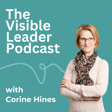
Creating Thriving Workplaces: How Phil Burgess and Felix Koch Are Redefining Success Through Connection
Testament to their belief that relationships are the source of results, Phil Burgess and Felix Koch have worked together for more than a decade.
As joint Managing Directors of marketing services agency, C Space, their people-centric leadership approach to culture transformation led to various awards including ‘Best Place to Work’, ‘Best Agency’ and ‘Learning Team of the Year’ at the Learning Performance Institute’s Global Learning Awards.
They were jointly listed on Management Today’s ‘Agents of Change’ Power List for men championing gender equity in business and in 2022, Felix was listed on the InsideOut LeaderBoard which celebrates senior-leader role models who are working to smash the stigma of mental ill-health in workplaces.
As Chief People Officer and European CEO of C Space, they commissioned an award-winning mental health and connection programme which had a phenomenal impact on participant wellbeing and their sense of connection.
This inspired them to leave their corporate careers to set up WITHIN where they now work with leaders to drive results by creating cultures of connection where people can thrive. Their award-winning, group-based approach strengthens relationships, significantly improving wellbeing and delivering sustained impact over time.
The topics we covered:
- How people feel connection and disconnection in the workplace.
- Where employee disconnection might show up in the bottom line.
- What positive impact working on connection could bring.
- How people’s best efforts often miss the mark.
- And what you can do that will really make a difference.
If you want to hear more from Phil and Felix sign up to their free workshop:
Unlearning 3 leadership habits that prevent connection. https://calendly.com/within-business/within-workshop-unlearn-3-habits-that-prevent-connection?month=2023-10
Or connect with them on LinkedIn:
Felix: www.linkedin.com/in/relationships-are-the-source-of-results/
Phil: https://www.linkedin.com/in/philipburgess/
Edited by Steve Woodward at podcastingeditor.com
